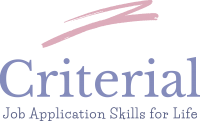In the almost post COVID world we live in, job markets are increasingly competitive, supply of workers is reducing and completing a competitive selection criteria is more important. Employers can choose to be choosy and suggestions of selection criteria ageism are increasing.
50 is the new 60 when it comes to defining ‘older worker’

A recent AFR article discusses age and ageism in the workplace:
A survey of more than 600 business leaders by the Human Rights Commission and Australian HR Institute found that 17 per cent of respondents classified 51- to 55-year-old workers as “older”, compared with just 11 per cent in 2018….Age Discrimination Commissioner Kay Patterson worried that the pandemic may have contributed to this change, making it harder for older people to find work even as the increasing retirement age forces them to work longer. “All the evidence shows that when there’s a downturn, older workers are more likely to be targeted for redundancy” Dr Patterson said.
Unconscious Bias versus Selection Criteria Ageism
Ageism
Ageism or age discrimination is illegal. It has been for a long time in the Age Discrimination Act 2004.
More specifically:
18 Discrimination in employment
(1) It is unlawful for an employer or a person acting or purporting to act on behalf of an employer to discriminate against a person on the ground of the other person’s age:
(a) in the arrangements made for the purpose of determining who should be offered employment; or
(b) in determining who should be offered employment; or
(c) in the terms or conditions on which employment is offered.
Unconscious Bias
In the How to apply for a job where you work blog I discuss unconscious bias as it relates to people in your workplace ‘knowing you’ in the sense they know you for what they know you for. If the panel has established perceptions of you, they are hard things to change.
Selection criteria ageism works much the same way and is a function of psychology and your brain. Your brain likes to be efficient so it knows what it knows, and, saves energy thinking when it can. In technical terms:
Cognitive biases are mental errors caused by our simplified information processing strategies. ... In other words, a cognitive bias does not result from any emotional or intellectual predisposition toward a certain judgment, but rather from subconscious mental procedures for processing information. A cognitive bias is a mental error that is consistent and predictable“.
https://www.ialeia.org/docs/Psychology_of_Intelligence_Analysis.pdf (p111)
The worst thing about thinking biases is they’re very hard to combat as they are by definition unconscious!
This is as unfair as if someone deliberately didn’t shortlist your selection criteria because of your age.

How to avoid unconscious bias
There are steps you can take to avoid indicating your age when you complete a job application.
This advice is about job applications. When you’re offered a job there are disclosures you are required to make to be employed.
Obvious
Do not list your date of birth in your resume. There is no requirement to do this.
Do not add a photograph to your resume. There is no requirement to do this.
Not so Obvious
I will discuss these factors and give some reasons as they are not as obvious.
Your Resume –
What is a resume? It is defined as:
… a formal document that provides an overview of your professional qualifications, including your relevant work experience, skills, education, and notable accomplishments.
Key word there is relevant work experience. If like me you had a job at age 15 in 1987 sweeping footpaths at the local day care center after school three days a week, that has exactly zero relevance to what I am doing now.
The only useful reference that could be in a resume is to show continuous employment for a very long time; which you don’t need to do.
Do not list every job you have ever held
With that thought in mind, almost every person’s career goes through stages. Almost everyone starts out in a junior role and as their career progresses they become more senior and/or take on more responsibilities. There are exceptions to that and some people choose to not take on more responsibility.
As a reader of your selection criteria and resume, and, as someone who does not know you, I take certain things as read.
I know you have been employed in or held another role, if you are currently employed as an AO5. Whether that was five years ago, or twenty years ago doesn’t matter.
I am reading your application to assess your suitability for the job you are applying for. I am assessing your skills, qualifications and work examples you can show me. What you were doing when you were 15 doesn’t matter to me.
I have other jobs so what do I put?
My suggestion would be a simple statement that you have held other roles that are not relevant to this job, but can provide details on request or if needed.
It will not reduce your chances of getting shortlisted. If you had a casual role at KFC as a 16 year old, I am not going to read about it anyway.
As an applicant for a management role, if you had a customer service role for your first job 20 years ago, I am not going to read about it as it doesn’t impact your skills now to be a manager.
If there is something from that role that is important, use it as an example in your selection criteria response only if you cannot think of something ore recent/current.
Do not list your high school certificate
I know you have the skills to get in and stay in an AO5 role if that’s what you currently do. I can read your examples in your selection criteria, and, I can get a referee report from your current supervisor. In reading your selection criteria response I am not conducting a retrospective or your career. I am making an assessment of your skills for the role you are applying for.
What year you completed high school, if you completed at all, is irrelevant. What subjects you completed in high school is irrelevant. Even if you are applying for a job dealing with chemistry, I am assessing your professional skills for that role so your high school chemistry subject is unlikely to be relevant.
You also do not need to list what awards you won in high school, or primary school. You’re in a competitive job market competing with adults, whether you got a year 7 science award is not important.
Costs and Benefits
Writing a selection criteria response is about showing you meet the criteria for a job. You need to provide sufficient information to do that. In deciding what to say it is a a balance between saying enough, and, saying too much. Too much is not just too many words. It is also saying things that are not relevant to the job you are applying for.
There are no obligations to disclosure your high school education so making a choice to do it is a risk of creating an unconscious bias because you were in school in the 1980’s.
Share this post
